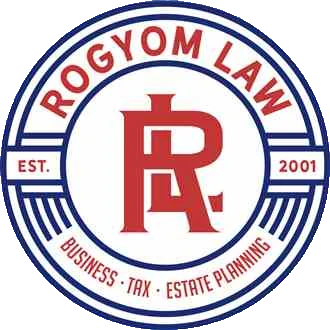Owners of s-corporations are quickly introduced to complex tax issues. An s-corporation has “flow-through taxation”. This means the s-corporation itself usually pays no income taxes for its income, but its stockholders do. The s-corporation files its own tax return. That tax return generates a K1 that’s given to its shareholders and its shareholders report and pay the taxes on the shareholders’ personal tax returns. But the shareholders may also be required to pay themselves a salary if they are also employees or otherwise perform services for the corporation.
A major benefit of an s-corporation that’s unavailable to the owner of a sole-proprietorship or partnership is that “distributions” from the s-corporation to the owner, while still taxable as income, are not considered salary. Thus, they will usually not be considered income for purposes of employment taxes. Some corporations and shareholders have abused this benefit by not providing any salary to shareholders to relieve the shareholders of any employment tax liabilities. The IRS realizes corporations sometimes choose to make excessive distributions, rather than treat these amounts as salaries, and the IRS will audit companies when the amounts appear abusive.
A shareholder of an s-corporation often wears many hats: owner, officer, board member, employee, contractor, and, sometimes, a creditor of the corporation. To the IRS, if the shareholder is performing services, then at least a portion of the shareholder’s income from the s-corporations should be salary for services. To comply, the s-corporation would need to pay the employee/shareholder as any other employee, with the requisite payroll deductions, the issuing of W-2’s, etc.
In some cases, such as where the shareholder is the only person performing any services for or on behalf of the company, the IRS has successfully argued that the shareholder must treat all income received from the corporation as salary. Therefore, it is often a rule among tax consultants that, if a client intends to form an s-corporation to minimize employment taxes, the s-corporation must have more than a single shareholder employee. The basis for allowing a distribution to not be considered “salary” for employment tax purposes is that the source of a distribution could be the result of the efforts by either the shareholder or an employee. When the s-corporation has only a single employee, then in most cases all income can be traced back to the efforts of that single individual.
The shareholder/employee must be paid a reasonable wage for his efforts. Paying less than a reasonable amount can trigger an audit, especially when substantially lower than reasonable or zero. To determine whether a reasonable salary is being paid, the IRS evaluates the following factors:
- Training and experience
- Duties and responsibilities
- Time and effort devoted to the business
- Dividend history
- Payments to non-shareholder employees
- Timing and manner of paying bonuses to key people
- Salaries that similar businesses pay
- Compensation agreements, and
- The use of a formula to determine compensation
If the IRS finds that the entity paid an unreasonably low salary, then the IRS can reclassify income from being a distribution to being salary. Unfortunately, many small businesses that abuse this otherwise legitimate s-corporation tax benefit do so because they are unaware of their salary obligations, were poorly advised, or simply want to avoid the inconvenience of issuing a w-2. Understating salaries puts the company at risk for an IRS audit. Not only is an IRS audit often expensive and burdensome, but such audits could also allow the IRS to discover other tax reporting issues. Therefore, the s-corporation will usually be best served by paying a reasonable salary to its shareholder employees.
The IRS considers the payment of unreasonably low salaries for s-corporation shareholder employees to be a major compliance issue, so having a professional evaluate your company’s shareholder compensation evaluated is recommended.
For further information regarding forming an LLC or corporation and its corporate tax compliance, please contact Jeff Rogyom at (410) 929-4578.
Please review the Disclaimer page regarding use of this website and its information.

